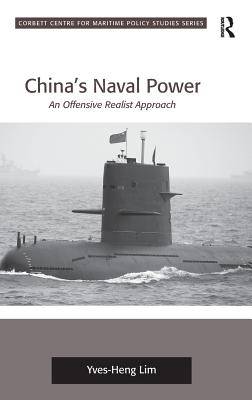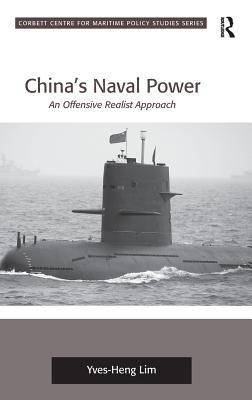
Door een staking bij bpost kan je online bestelling op dit moment iets langer onderweg zijn dan voorzien. Dringend iets nodig? Onze winkels ontvangen jou met open armen!
- Afhalen na 1 uur in een winkel met voorraad
- Gratis thuislevering in België vanaf € 30
- Ruim aanbod met 7 miljoen producten
Door een staking bij bpost kan je online bestelling op dit moment iets langer onderweg zijn dan voorzien. Dringend iets nodig? Onze winkels ontvangen jou met open armen!
- Afhalen na 1 uur in een winkel met voorraad
- Gratis thuislevering in België vanaf € 30
- Ruim aanbod met 7 miljoen producten
Zoeken
Omschrijving
The rapid modernization of the Chinese Navy is a well-documented reality of the post-Cold War world. In two decades, the People's Liberation Army Navy has evolved from a backward force composed of obsolete platforms into a reasonably modern fleet whose growth is significantly shaking the naval balance in East Asia. The rationale behind China's contemporary rise at sea remains, however, difficult to grasp and few people have tried to see how the current structure of the international system has shaped Chinese choices. This book makes sense of Chinese priorities in its naval modernization in a 'robust' offensive realist framework. Drawing on Barry Posen's works on sources of military doctrine, it argues that the orientation of Beijing's choices concerning its naval forces can essentially be explained by China's position as a potential regional hegemon. Yves-Heng Lim highlights how a rising state develops naval power to fulfil its security objectives, a theoretical perspective that goes farther than the sole Chinese case.
Specificaties
Betrokkenen
- Auteur(s):
- Uitgeverij:
Inhoud
- Aantal bladzijden:
- 234
- Taal:
- Engels
- Reeks:
Eigenschappen
- Productcode (EAN):
- 9781409451846
- Verschijningsdatum:
- 15/01/2014
- Uitvoering:
- Hardcover
- Formaat:
- Genaaid
- Afmetingen:
- 156 mm x 234 mm
- Gewicht:
- 508 g

Alleen bij Standaard Boekhandel
+ 610 punten op je klantenkaart van Standaard Boekhandel
Beoordelingen
We publiceren alleen reviews die voldoen aan de voorwaarden voor reviews. Bekijk onze voorwaarden voor reviews.











